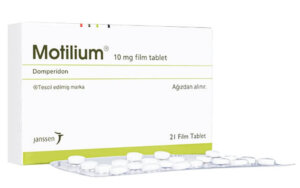It seems that evolution in healthcare puts a lie to the famous French saying, “Plus ça change, plus c’est la même chose,” which roughly translates as “the more things change, the more they stay the same.” Maybe that’s appropriate for human behavior, but when it comes to changes in the quality and scope of medicines and treatments, it’s the direct opposite because new and revolutionary changes are coming out all the time that completely alter vital aspects of life for at least some people, and often for a majority of the population.
Each month, we pick out a few of the more interesting innovations that have been publicized. Last month, some extremely exciting developments occurred, and we are happy to bring them to your attention.
Providing the right medicines and treatments for mental health disorders like anxiety and depression can have a marked effect on reducing the incidence of heart disease.
Thanks to a study published on March 20th in the Journal of the American Heart Association, it is now understood that providing proper psychotherapy or medication, or a combination of both, for patients who suffer from what is widely regarded as psychological or mental health disorders like anxiety or depression can have strong positive effects on their physical health as well.
The connection between mental well-being and heart health is receiving attention. A research project at Ohio State University dives into the impact of mental health treatment on individuals with heart conditions. The study specifically looked at patients who had been hospitalized for ailments such as artery disease or heart failure and who also suffered from anxiety or depression.
Key Discoveries
- Patients who underwent a combination of medication and therapy for their mental health concerns showed a drop in hospital visits – up to 75% less.
- Individuals treated solely with psychotherapy experienced a decrease in emergency room visits of around 50%.
- Treatment using medication alone also demonstrated benefits, reducing hospital readmissions by 47% to 58%.
- Most impressive is the finding that the risk of death from a cardiac event for those receiving both forms of treatment decreased by between 65% to 67%.
The study elaborates on how heart disease and mental health conditions, like anxiety and depression, can worsen each other’s effects. These conditions are linked to the nervous system’s activation.
This aspect of the person’s total system can raise heart rate and blood pressure, potentially leading to feelings of anxiety and depression.
The research project monitored around 1500 individuals between the ages of 22 and 64 for three years. These individuals had previously been hospitalized for heart-related concerns and had received diagnoses of anxiety or depression. One caveat regarding the demographics was that most participants were women (68%) and white (81%), and all were part of the Ohio Medicaid program. These specifics indicate that the results may not fully represent the population with different healthcare coverage or diverse racial backgrounds, so further research is indicated.
The doctors who conducted this research are optimistic that these discoveries will prompt professionals to regularly assess mental health in patients with heart conditions. They emphasize a collaborative approach to care that combines mental health management. The study also highlights the necessity for an investigation into the underlying links between mental health disorders and heart ailments.
This study showcases an overlap between emotional well-being and physical health. By addressing mental health issues such as anxiety and depression, doctors can enhance the emotional welfare of their patients with heart disease and significantly improve their overall health outcomes. This approach of optimizing both medicines and treatments could decrease hospital stays and reduce mortality rates. It underscores the significance of healthcare approaches that consider both mental and physical well-being.
A new approach to medicines and treatments for patients with a diagnosis of heart failure with reduced ejection fraction (HFrEF)
Congestive heart failure (CHF), as defined by the American College of Cardiology (ACC) and the American Heart Association (AHA), is “a complex clinical syndrome that results from any structural or functional impairment of ventricular filling or ejection of blood.” Ischemic heart disease is the leading cause of death worldwide. On March 14th, the ACC published a new update to its Consensus Decision Pathway for the treatment of heart failure with reduced ejection fraction (HFrEF).
The article in the Journal of the American College of Cardiology discusses ten areas related to treating heart failure, focusing on the most effective care strategies, medicines and treatments for patients. The updated guidelines for heart failure treatment introduce Entresto as a primary therapy option, highlighting its benefits compared to ACE inhibitors or angiotensin receptor blockers. This medication is now recommended as a treatment for patients with heart failure and reduced ejection fraction, significantly lowering the risks of heart failure hospitalizations and mortality.
Additionally, inhibitors such as Jardiance, based on empagliflozin, represent an advancement in heart failure treatment. These inhibitors have demonstrated effectiveness in reducing hospitalizations and deaths related to heart failure. The expanded use of inhibitors aligns with evidence supporting their role in enhancing heart health. Moreover, the latest guidelines stress the importance of starting and adjusting a combination of medications known as the “four pillars” of heart failure therapy: ARNi (such as Entresto), a beta-blocker (such as Coreg, Bystolic, or Zebeta), a mineralocorticoid antagonist such as Aldactone or Inspra, and an SGLT inhibitor such as Jardiance, Xigduo (Dapagliflozin + Metformin), Steglatro (Ertugliflozine), Synjardy (Empagliflozin + Metformin).and Glyxambi (Empagliflozin + Linagliptin).
Breathe a sigh of relief for the thousands of women now taking GLP-1 weight-loss medications.
Until very recently, there were no in-depth studies to rely on when doctors were asked to either recommend or prohibit the use of glucagon-like peptide-1 (GLP-1) receptor agonists and SGLT2 inhibitors for women who either were already pregnant or who may fall pregnant while taking them.
Managing maternal blood sugar levels is one of the most important issues of concern in pregnancy and fetal health. The discussion surrounding the utilization of medicines and treatments during pregnancy in women with type 2 diabetes has been a subject of ongoing research. It is crucial to manage blood sugar levels while ensuring the well-being of the developing fetus.
A recent comprehensive study has brought insights into the safety of GLP-1 and SGLT2 during the crucial early stages of pregnancy. This research is considered one of the most extensive in its field to date. It delves into how GLP-1 receptor agonists, SGLT2 inhibitors, and other antidiabetic medications impact pregnancies during the early phases. The study compares these drugs with insulin, a recommended treatment for diabetes in women due to its non-crossing of the placenta and its recognized safety for the fetus.
The findings from this study suggest that utilizing GLP-1 receptor agonists, SGLT2 inhibitors, and other non-insulin antidiabetic medications does not pose a risk of birth defects compared to insulin usage during pregnancy. Compared to insulin, the adjusted risk ratios for malformations were marginally higher for sulfonylureas and lower for DPP 4 inhibitors, GLP-1 receptor agonists, and SGLT2 inhibitors.
The results indicate that the risks of medicines and treatments linked to GLP-1 receptor agonists and SGLT2 inhibitors are similar to or slightly better than those of insulin. The research findings back the idea that using GLP-1 receptor agonists and SGLT2 inhibitors in the early stages of pregnancy is safe, which gives confidence to healthcare providers and expectant mothers managing type 2 diabetes.
This study offers assurance regarding the safety of GLP-1 and SGLT2 compared to insulin therapy with expectations that ongoing research and data collection will provide clearer guidance in the future. These medications have boomed thanks to their remarkable effect in inducing appetite suppression and rapid weight loss. Now, the knowledge that their use does not impair the safety of both mother and fetus can give prescribing doctors more confidence.


















